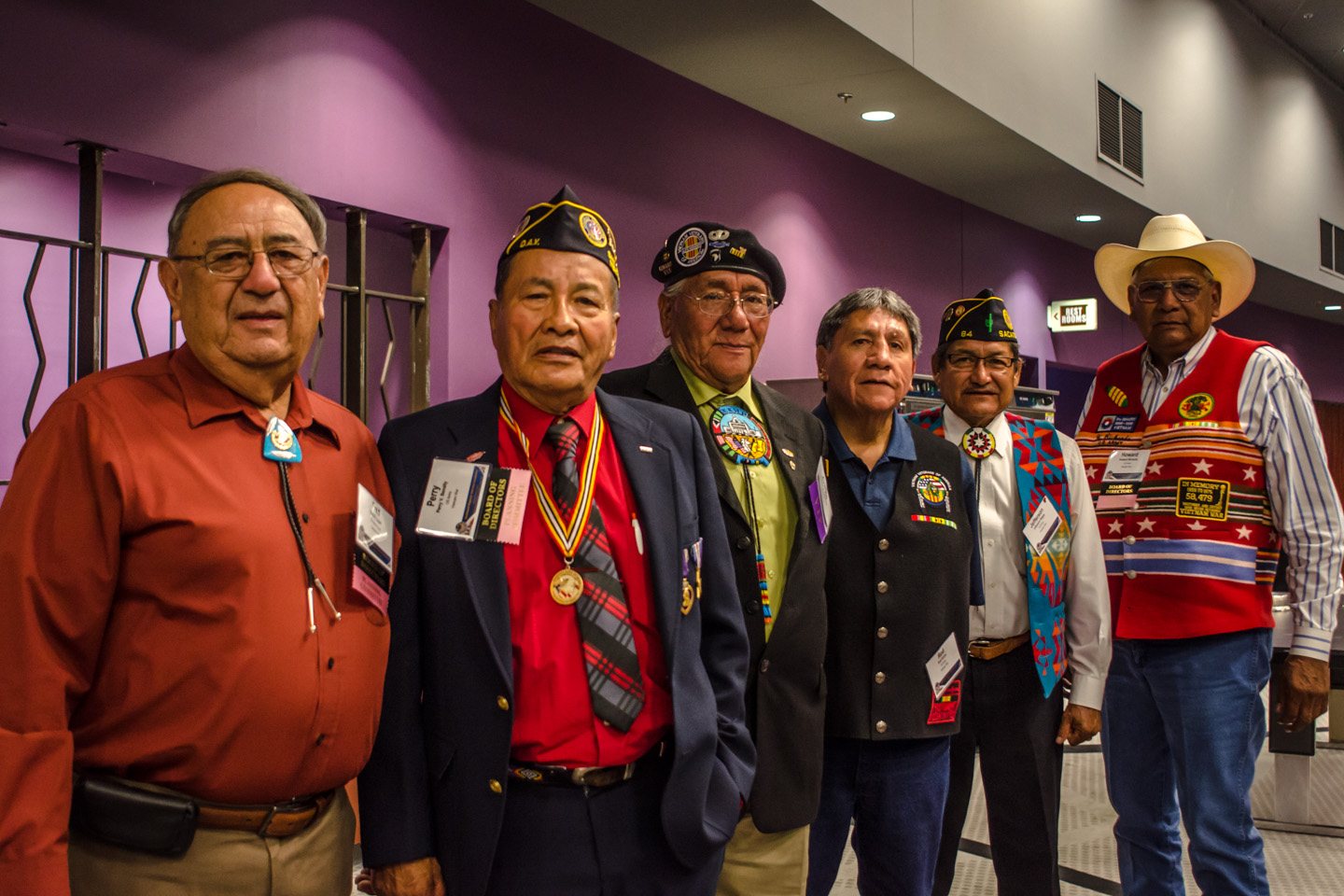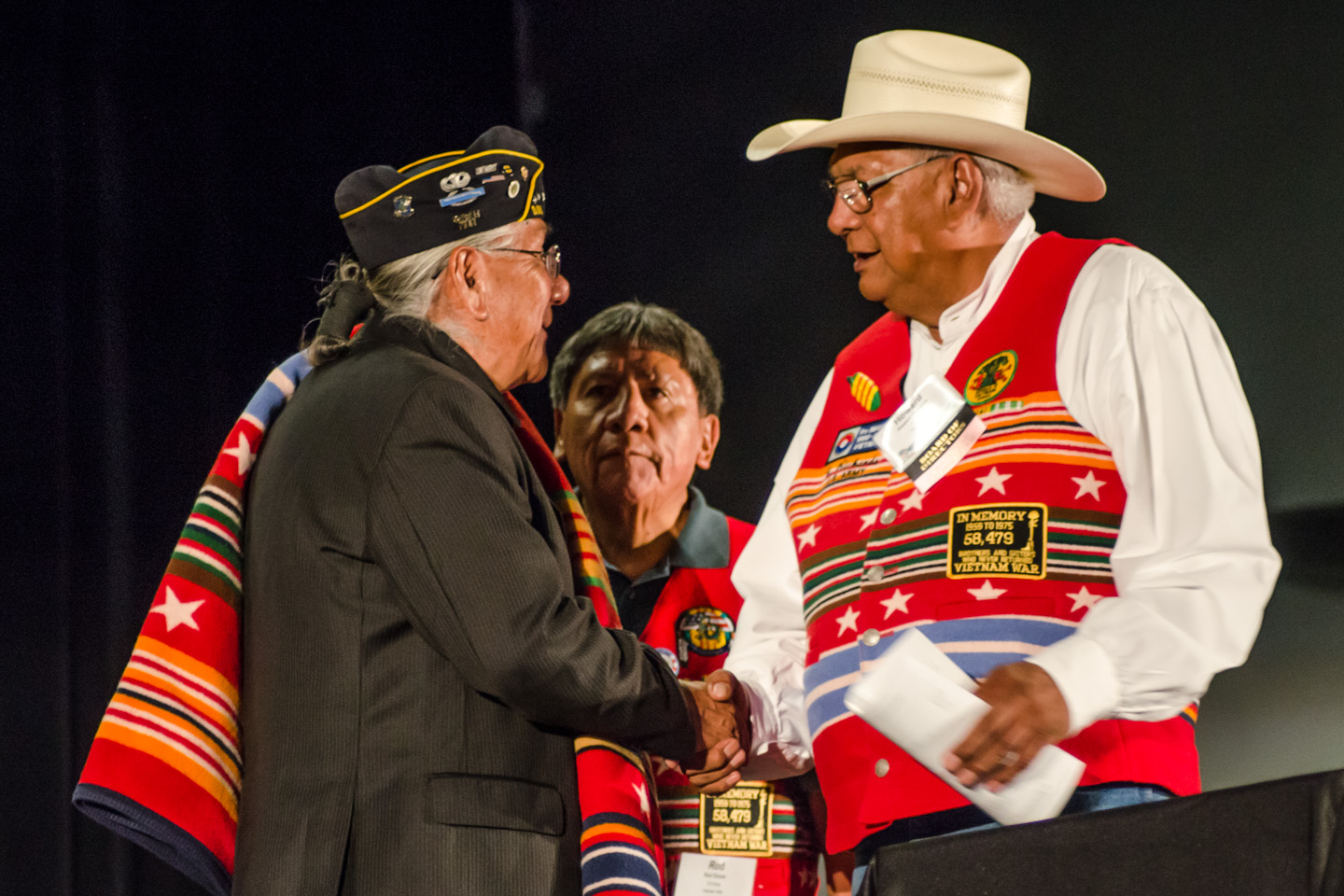In honor of the veterans who have given their greatest strengths for freedom, veterans from the Southern Ute Indian Tribe paid their respects to their fellow comrades during Southwest Native American Veterans Association’s conference at the Isleta Casino & Resort in Albuquerque, NM Wednesday, Sept. 24. Southern Ute Councilman, Howard D. Richards Sr., and Southern Ute veteran, Rod Grove, spoke on behalf of the Southern Ute Indian Tribe in regards to the experiences endured, while paying respects to Vietnam veteran, Avelino J. Calabaza, who received a Pendleton blanket from the Tribe as part its gratitude.
“We take that oath to defend this country, “ said Howard D. Richards. “Some of us carry that even further. Mr. Calabaza is a good example because he fights to continue.”
Avelino Calabaza served in Vietman from 1969-1971 under the combat division. He was under the Green Berret and Special Forces unit as part of his service. Since 2000, he has been an advocate for American Indian veterans and has helped more than 135-individuals over the years through his guidance. Calabaza stood proudly near the podium with the Pendleton blanket in hand.
“I don’t know if I deserve this, but my spirit belongs to this blanket, and I will wear it in good health for honor for the veterans of the United States of America. We must always fight for our country,” he said.
Rod Grove discussed the experiences that were faced during active duty, as well as the experiences presented when coming home.
“These veterans borrowed warriors code and put themselves in harm’s way for the freedom of others,” he said. “When we came home on the plane, that was just the beginning of another battle. [Many of us] underwent Post Traumatic Stress Disorder, self-medication, seeing friends dying from alcohol and suicide. We are all still very affected.”
The SWNAVA conference was greeted with American Indian veterans who spoke on the topics of stereotypes while in the army. Steve Abeita from the Isleta Pueblo addressed the various stereotypes that were witnessed from personal experience.
“There’s a lot of stereotypes going on and it’s good seeing Native Vets shatter those stereotypes,” he said. “But then I started thinking about these stereotypes, and when you’re a native, the army expects you to be a better soldier. They assume, which is two sides of the coin. We’re born into a warrior society. A warrior fights for his home and his family. There’s no truer warriors out there than natives, and I began to accept that as I continued through my military career.”
In addition, the SWNAVA conference covered the topic regarding the upcoming expansion of the Vietnam Veterans Memorial Wall in Washington, DC, addressing the possible expansion of the memorial with the inclusion of an American Indian veteran’s tribute. The American Indian Veterans Memorial (AIVMI) is collaborating with the Vietnam Veterans Memorial Fund to build this exhibit within the Education Center at the Vietnam Veterans Memorial Wall. The tribute is expected to highlight the bravery, contributions, and sacrifices of the American Indian, Alaskan Native, and Pacific Islander veterans who provided their services.
“We as a tribe were once told to never have a tribute wall on the reservation, but now we do,” said Grove. “[But] times have changed, and things can be done. This tribute to the Native Veterans will educate many.”
“Life is a path that everyone walks,” Richards said finishing his closing statement. “The journey of a thousand miles starts with the first step. You have to take that first step today, and take another tomorrow. Follow that journey into life as we were taught. We need to carry that on to our children so we’re all respectful of one another.”




